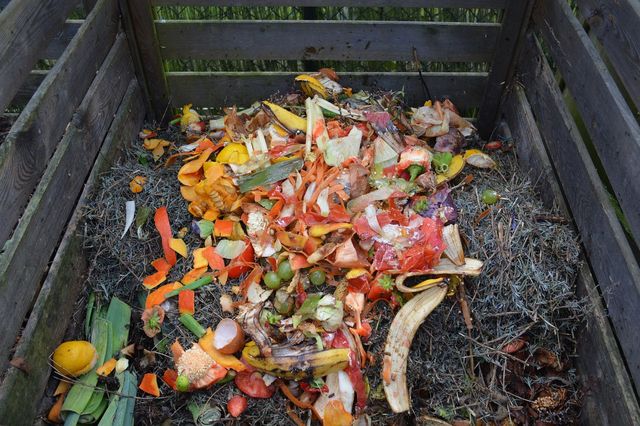Organic waste management is an important part of creating a more sustainable environment. Organic waste, such as food scraps and yard trimmings, can release harmful pollutants into the air, water, and soil when disposed of improperly.
By implementing proper organic waste management techniques and practices, we can reuse organic materials in productive ways while minimizing pollution. While the scientific facts are there, the common idea with organic waste has been they are going to decay anyway. If then, what’s the point of it all?

Let’s go to the start:
Organic waste management is the process of disposing of organic materials safely and sustainably. Organic waste includes food scraps, yard trimmings, manures, crop residues, wood chips, paper products, animal wastes, and more. Properly managing these materials helps reduce air pollution, water contamination, and soil degradation while providing energy sources through composting or anaerobic digestion.
The scientific facts on organic waste management are compelling. Studies have found that when organic materials are not properly managed, they release methane and carbon dioxide into the atmosphere leading to climate change. In addition, when organic matter decomposes in landfills, it can leach pollutants such as nitrogen and phosphorus into drinking water sources, leading to algal blooms and fish kills. Furthermore, composting organic materials can reduce water pollution from agricultural runoff and conserve natural resources.
Also Read: How to Make Your Backyard More Eco-Friendly
Organic waste management is not only beneficial for the environment, but it can also provide economic benefits. For example, composting can be used to create nutrient-rich soil amendments that can be sold or given away. This, in turn, helps home gardeners and farmers save money on fertilizers while providing a source of income for those involved in composting operations. In addition, anaerobic digestion of organic waste releases biogas which can be used to generate electricity or as a renewable fuel source.
From a scientific standpoint, there is no doubt that organic waste management has its benefits. By properly managing our organic waste, we can not only reduce pollution, conserve natural resources and create renewable energy sources, but we can also save money on fertilizers and generate an additional source of income. The point of it is that everyone wins by properly managing our organic waste. It’s a win-win situation for the environment and our economy.
So, what’s been preventing people from actually doing all of this?
Over the years, organic waste management has faced several roadblocks that have hindered its widespread implementation. One major challenge is more understanding and knowledge about organic waste and how to manage it properly. Many people need to be aware of the environmental and economic benefits associated with organic waste management or understand the processes involved. This can lead to improper disposal methods, such as dumping food scraps in landfills rather than composting them or disposing of animal manure in drinking water sources instead of anaerobically digesting them.
In addition to this, many regulatory restrictions in place hinder organic waste management. These regulations vary from country to country but often involve requirements for expensive infrastructure investments or labor-intensive practices that are difficult to implement on a large scale. Furthermore, in many countries, there need to be more incentives for businesses or individuals who wish to adopt organic waste management practices. This means that even if someone was interested in composting their food scraps, they might not be able to find the financial resources or assistance needed.
Finally, another major roadblock facing organic waste management is the need for more public awareness and education about its benefits. People need to understand why it is important to properly manage our organic waste to have adequate infrastructure and policies that prevent its widespread adoption. Therefore, providing information about the environmental, economic, and social benefits associated with organic waste management must become integral to any campaign aimed at curbing pollution and conserving natural resources.
Organic waste management can significantly impact the environment, economy, and quality of life if properly implemented. However, there are several roadblocks that must be addressed for it to become widely adopted. These include a need for more understanding and knowledge about organic waste, regulatory restrictions, incentives, and inadequate public awareness and education. If these issues can be tackled, then organic waste management has huge potential to benefit us all in the long run.
The point is that we all need to take action when it comes to organic waste management so that we can benefit from its numerous advantages. By working together, we can implement better policies and provide the necessary support to ensure their successful implementation. An investment in organic waste management is investing in our planet, economy, and future. It’s time for us all to recognize the importance of properly managing our organic waste and start taking action!